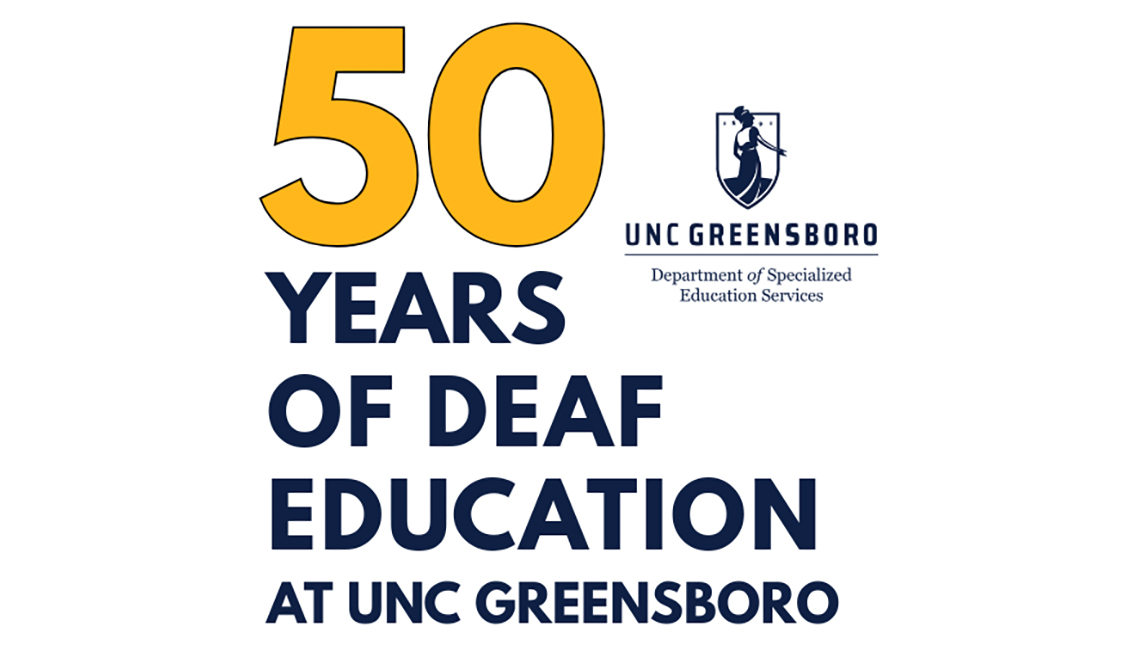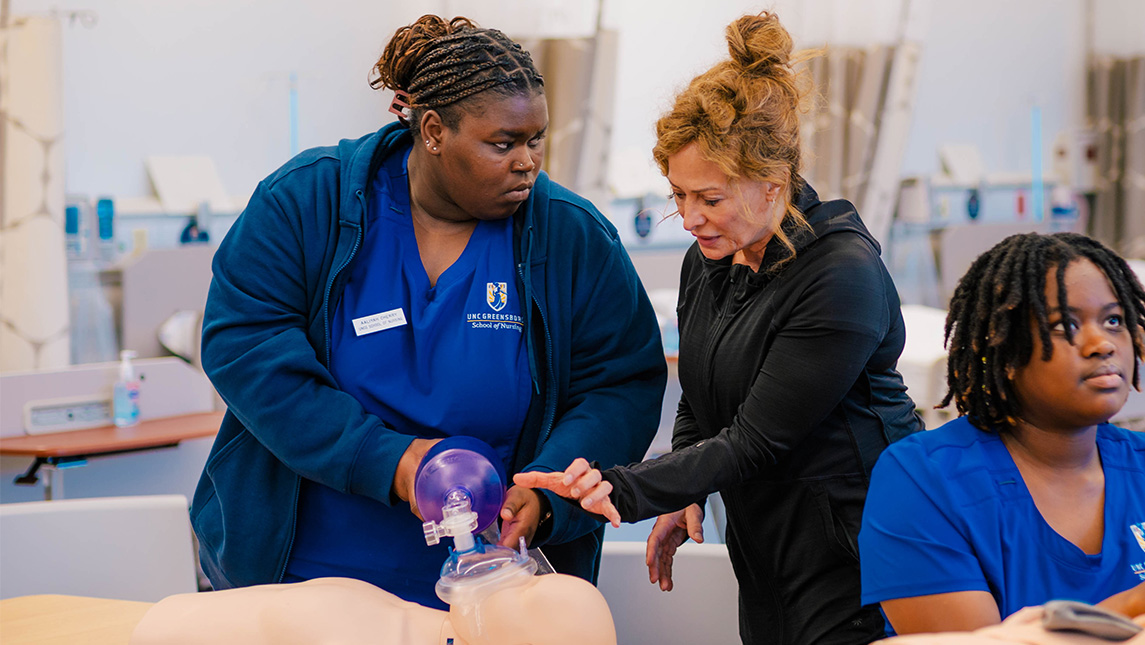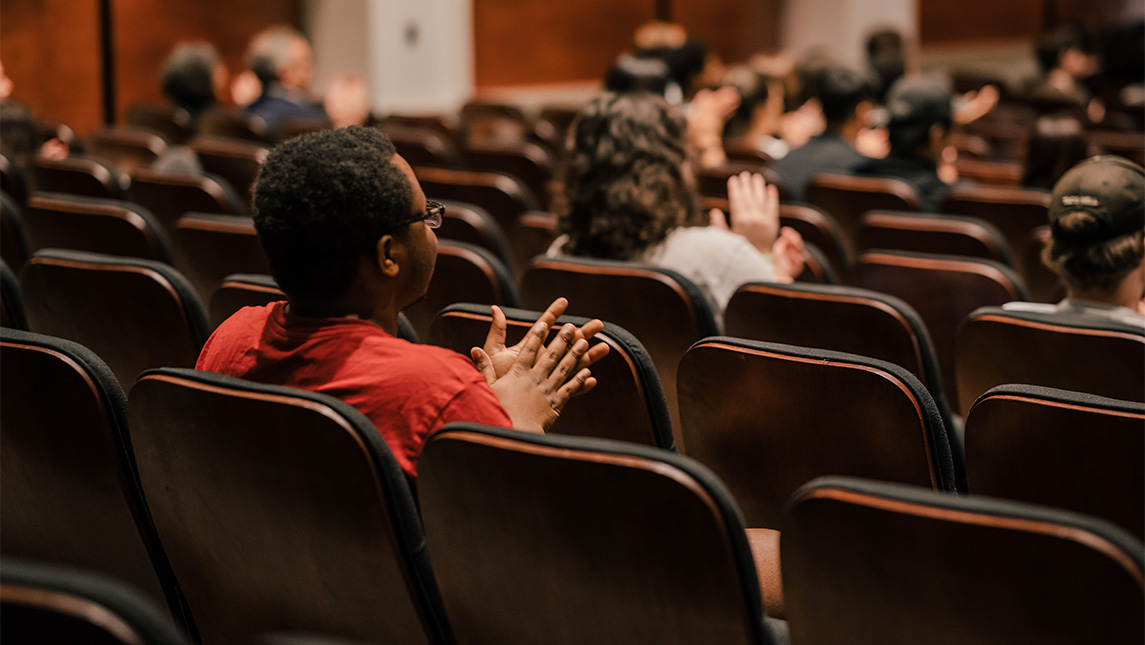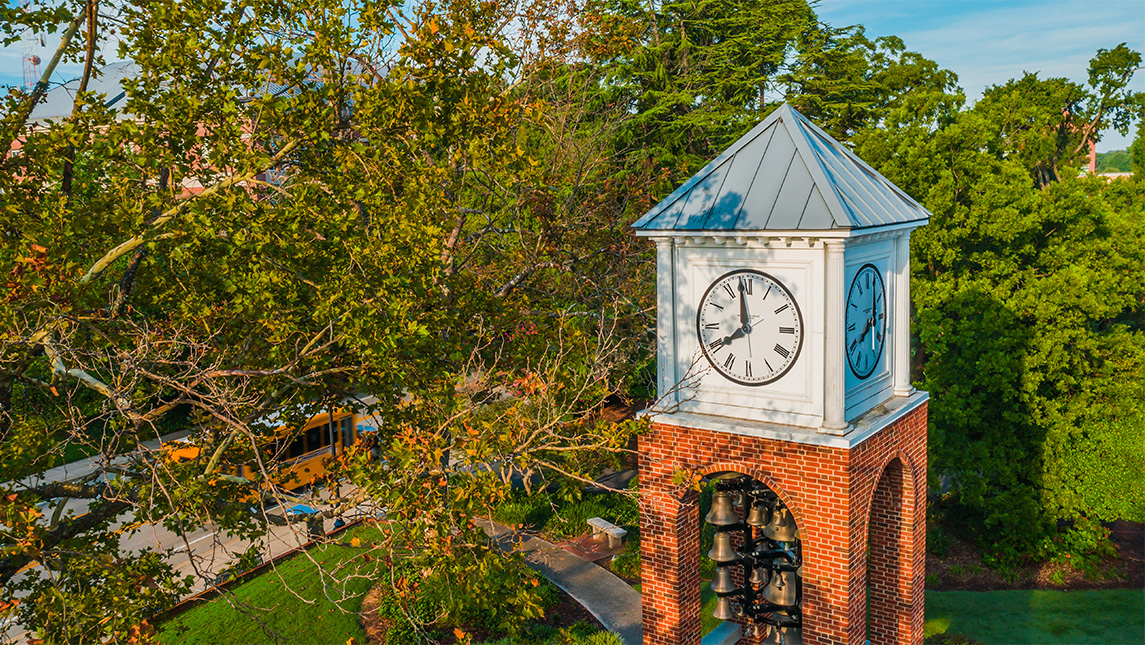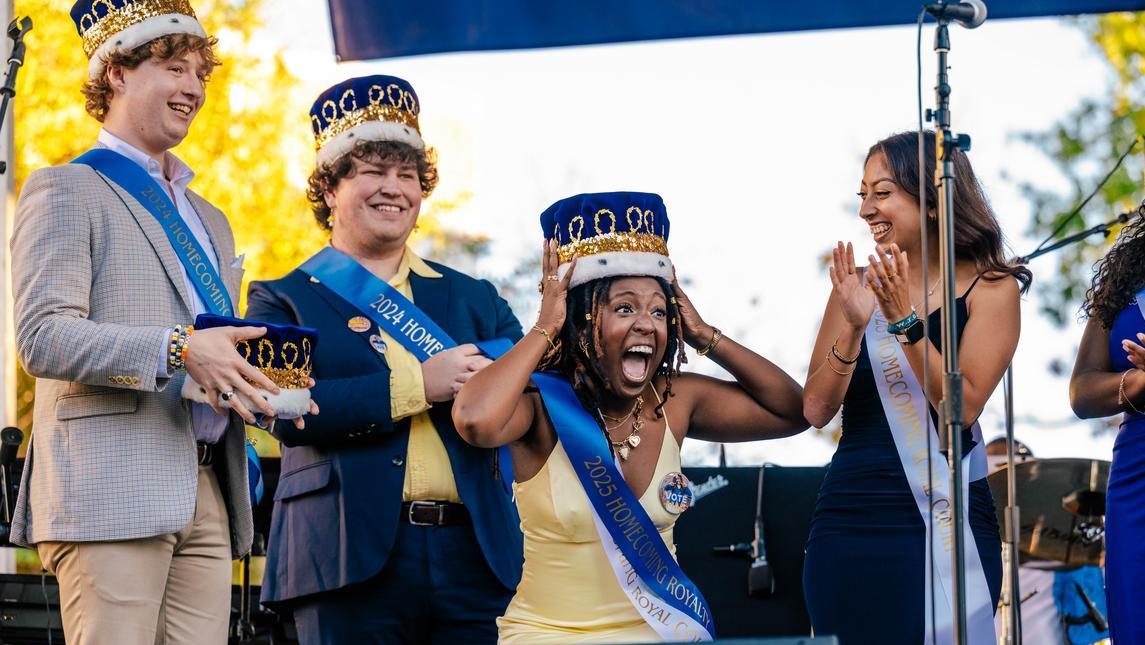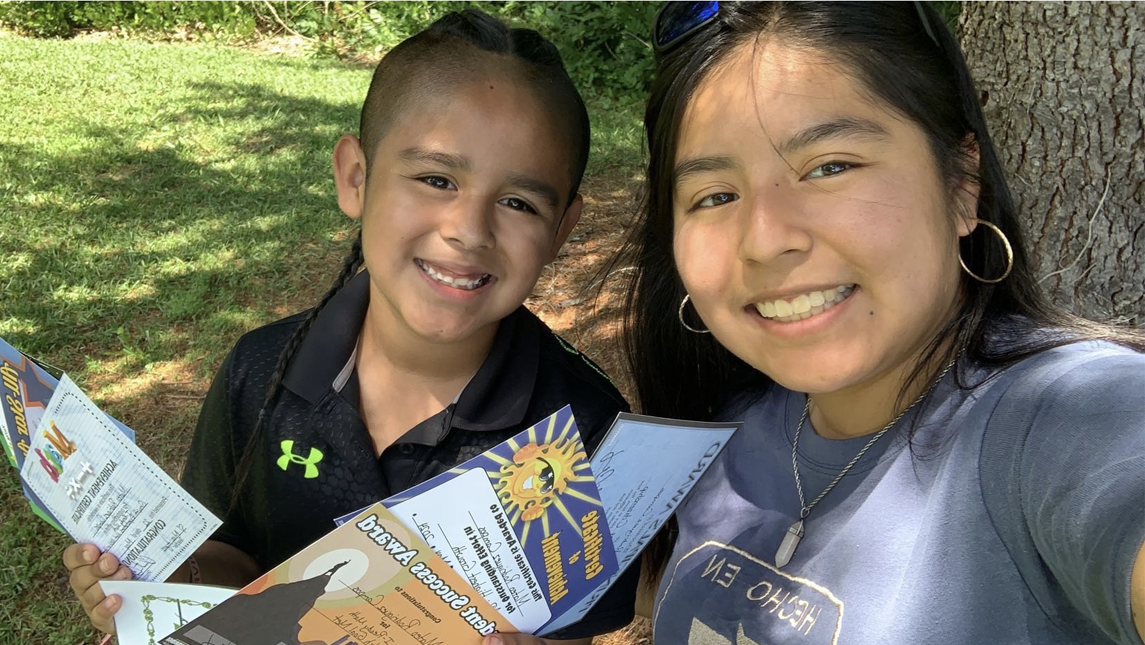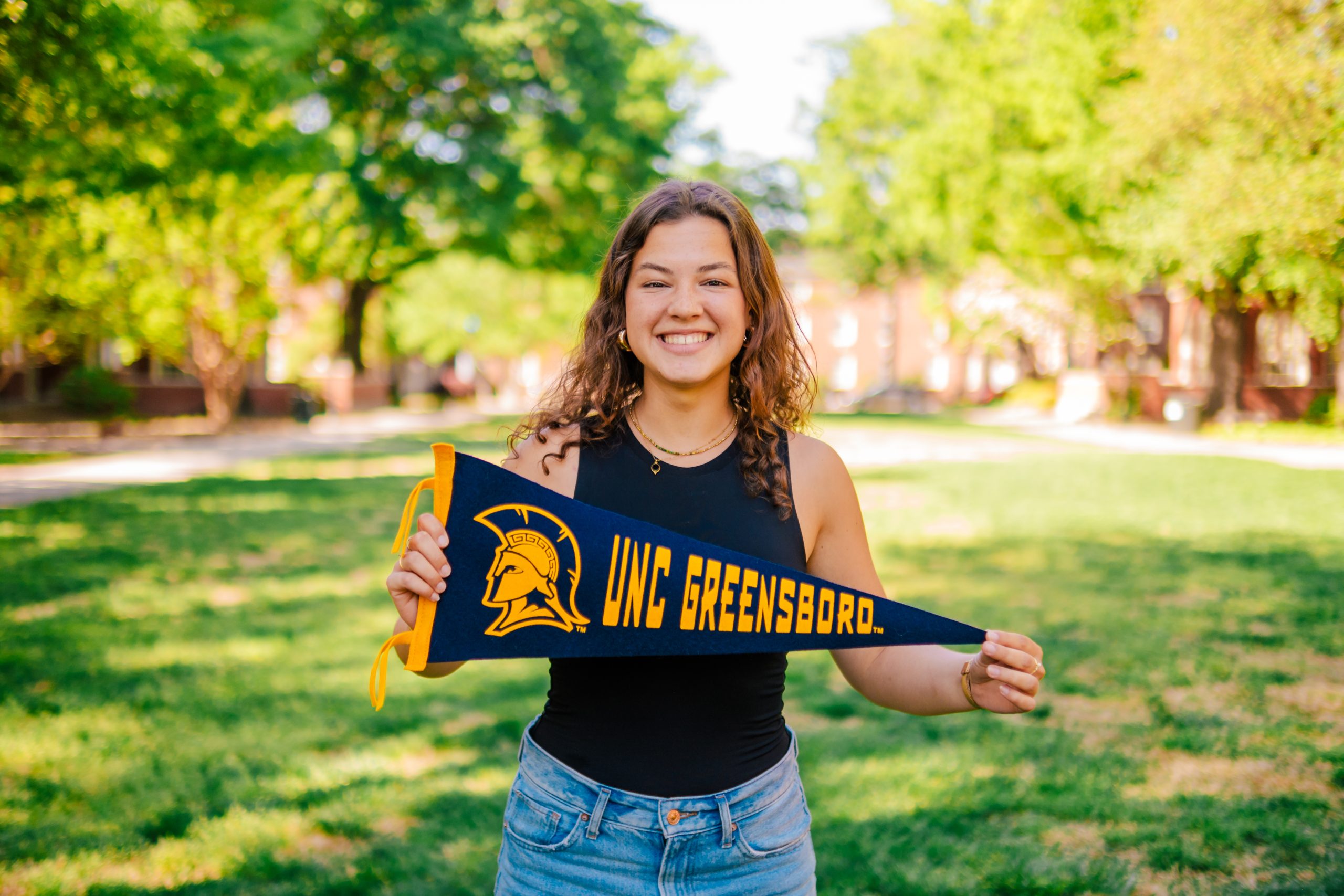For half a century, UNC Greensboro’s Deaf Education program has empowered students, educators, and advocates to break barriers and build community—one sign, one story, and one classroom at a time. As the Interpreting, Deaf Education, and Advocacy Services (IDEAS) program celebrates its 50th anniversary, its legacy of academic excellence and commitment to the deaf and hard-of-hearing community continues to shape the future of education in North Carolina and beyond.
Learning happens everywhere—sometimes in ways we don’t even notice. Picture a 6-year-old in her school library surrounded by shelves of colorful books. As she chooses a story about her favorite topic and settles in to read, she’s not just building literacy skills. She’s also learning how to navigate her environment: understanding when to be quiet, discovering new genres, and picking up on valuable social cues from classmates and teachers. This “incidental learning” is especially important in deaf education, where access to language and communication shapes every aspect of a child’s experience.
Jana Wilhelm, professor and coordinator for the Deaf Education major, says, “As hearing individuals, we pick up a lot through our ability to hear things happening around us,” Wilhem explains. “Unless deaf and hard-of-hearing students have access to early intervention, they miss the language opportunities all around them. They may see it, but they don’t know what is being said. We need to be sure we teach our children language skills at an early age.”
This year, as IDEAS celebrates its 50th anniversary at UNCG, Wilhem notes its significance, not only within our state but also across the country.
1975
UNCG offers Bachelor’s degree in deaf education
The Education for All Handicapped Children Act signed into Law
1990
Americans with Disabilities act signed into law
The Education for all Handicapped Children Act becomes the Individuals with Disabilities Act
1993
UNCG offers interpreting concentration
2007
ASL recognized by North Carolina as a foreign language
Elementary, secondary, post-secondary schools offer ASL classes
2008
UNCG builds ASL Teaching Licensure curriculum
2011
Sign lab opens in the state-of-the-art School of Education building at uNCG
2021
UNCG Program renamed from Professions in Deafness to Interpreting, Deaf Education, and Advocacy Services (IDEAS)
2025
UNCG celebrates 50 years of deaf education
Leading in deaf education
As North Carolina’s only undergraduate deaf-education program and K-12 teacher licensure program, UNCG’s IDEAS program prepares students for a variety of teaching jobs.
“Within Greensboro, we have a large deaf community. Our IDEAS program works closely with these individuals, and the deaf community continues to support our program,” Wilhem says. “It’s a nice two-way street.”
The IDEAS major provides three concentrations: Advocacy and Services for the Deaf; K-12 Deaf and Hard of Hearing Teacher License; and Interpreter Preparation. Students study the unique educational needs of deaf and hard-of-hearing children, emphasizing language acquisition, teaching methods, and communication modes with training in American Sign Language (ASL).
[CALL OUT: ASL is the third most used language in the United States.]
Graduates often land jobs with one of the state’s two deaf residential schools, Eastern North Carolina School for the Deaf in Wilson and North Carolina School for the Deaf in Morganton. Other students go on to serve deaf and hard-of-hearing students in public schools or interpret for government officials.
Wilhelm came to UNCG to lead the IDEAS program after teaching at a site-based school for deaf students in Nashville, Tenn.
“In site-based schools—another opportunity for our graduates—students from across a county will go to the same elementary, middle, and high school together for specialized services and resources,” she says. “It’s helpful for the students to be with other students who communicate like they do and understand what it’s like to be deaf.”
An agile program for changing needs
Throughout the United States, only 51 universities in 30 states offer programs like IDEAS.
Over the decades, UNCG’s instructors have consistently met a diversity of deaf and hard-of-hearing needs. The program’s philosophies and approach to education have evolved with the latest research.
Wilhelm says that in the program’s early years, deaf individuals were forced to learn how to speak and read lips. “But as time has gone on, research supports that oral language is not the only effective way to communicate.”
UNCG’s current bi-cultural, bilingual education focuses on language development and the fluency of ASL Wilhelm says, “We are taking the best of both worlds—not forcing them into the hearing world, but giving them access to their own visual language, or ASL, and the opportunity to learn English.”
As IDEAS heads into the next 50 years, the commitment to training the next generation of deaf advocates, interpreters, and educators stays strong.
“It’s extraordinary that UNCG offers this program,” says Wilhem. “There has been a huge decline in teacher preparation programs for deaf and hard of hearing students. The fact that we’ve had it for 50 years is amazing.”
Story by Robin Sutton Anders
Photography courtesy of the UNC Greensboro School of Education




